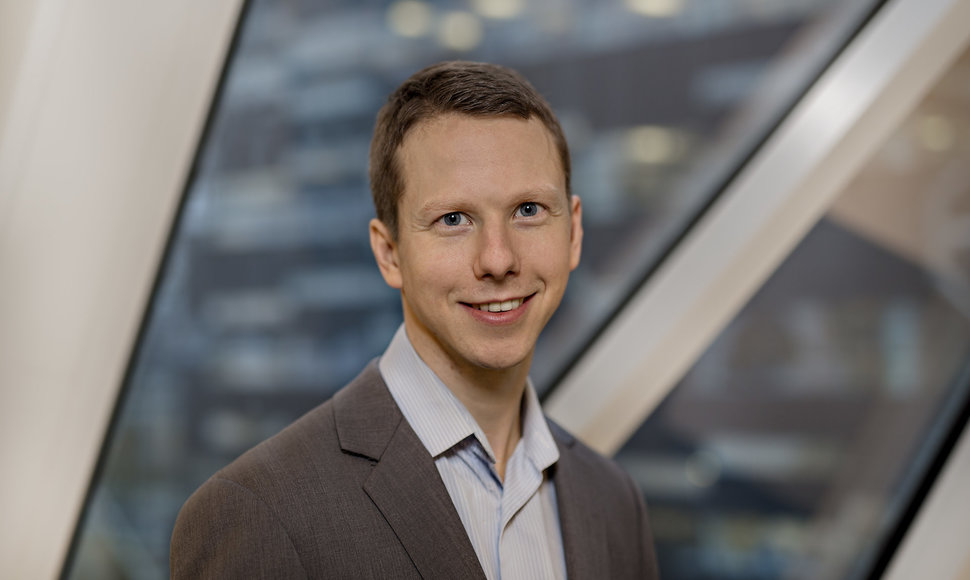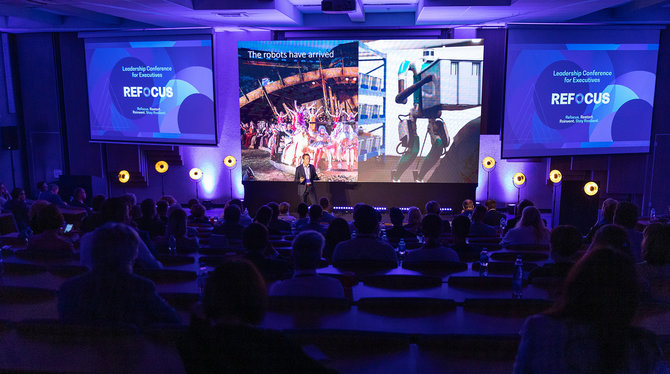Leaders should show emotions
Firstly, the Deloitte Centre of the Edge manager urges leaders to destroy the aura of omniscience. Uncertainty and fear are natural parts of a process of transformation and change. In the workplace, leaders should not try to hide their insecurities nor fight their emotions.
The Norwegian leader visited Lithuania in September, where he emphasised the importance of a good climate in an organisation and encouraged managers to embrace an unconventional form of leadership.
"Change requires trust. If we can change the way we think about leadership and make listening, understanding, and communication the most important personal traits of a leader, we could see a more effective, creative, and productive way of leading. Transformation begins with genuine conversations", Daniel Sunde-Hansen shares.
Psychological health is equally important
In addition to facilitating productive conversations, leaders can accelerate their organisations' capability for innovation and change by making it easier for employees to connect with resources outside their organisation.
"We are not always encouraged to seek out others to ask for help, but rather expected to complete the task quickly and flawlessly on our own. But for employees to learn faster, they need to be able to seek out and connect with people outside the company for help," says the leader.
Well beyond the traditional subject matter experts, people should be encouraged to seek inspiration and support across domains. One example is professional coaches and therapists. Pressure causes tension and stress, which external professionals can help reduce or alleviate. The head of the Deloitte Centre in Norway emphasises that leaders need to remember that this does not only apply to their employees, but also to themselves.
Many people still think in line with the old joke: "Anyone who goes to a psychiatrist ought to have his head examined.” So, when leaders share that they sought professional help, they contribute to breaking down a dangerous stigma.
Daniel Sunde-Hansen points out the opportunity to connect with people on the edges of business, technology, and society. These people can help challenge conventions and break outdated assumptions.
Transformation is slow to materialise
Implementing change takes time and requires patience. But leaders of large organisations are faced with a more complex challenge: Introducing a large change initiative in the organisation will provoke its 'antibodies'.
"While few people will identify as an opponent of change, we may all respond with resistance in the face of change. Some might fear losing resources or influence, but by large, the 'antibodies' are well-meaning people who want to see the organisation running efficiently in ways that are tried and tested."
Daniel Sunde-Hansen emphasises that leaders introducing change to the organisation must discard traditional ideas of being a 'strong leader'. If they go to war against the immune system, they will lose. Instead, leaders need to be clear on the long-term goals, use non-traditional metrics to show progress towards this goal.
Daniel Sunde-Hansen refers to the Center for the Edge's "Zoom out, Zoom in" approach to strategy. "Simplified, it's a cycle of launching a few focused 'edge' initiatives that can enable the organisation to create value 15-20 years from now".
Delaying change is detrimental to employees
Daniel Sunde-Hansen shares that most transformation initiatives in organisations fail to reach their goals. Faced with deadlines and tight budgets, leaders conclude: "While important, it's not urgent. We'll do down prioritized, or next year." This frustrates employees that are passionate about the new initiative's long-term opportunities. Talented employees that are uncomfortable with the status quo may leave the company for environments where they can use their passion to create new solutions.
Of course, leaders need to tend to the core operations that keep the business floating. But too often, this means losing the "passionate explorers" in the organisation. "While they often don't fit in, that's precisely why you need them," Daniel Sunde-Hansen states.
We are entering a new age, with new rules and new opportunities for people, and we need to explore what leadership means in this age. "It's an exciting journey where everyone needs to participate."
Daniel Sunde-Hansen, Head of Deloitte's Center for the Edge in Norway, shared these and other insights at the Refocus conference at the ISM University of Management and Economics.
The heads of Lithuanian and Norwegian organisations discussed how to strengthen business resilience and looked for the necessary ingredients to adapt an efficient hybrid working model. The conference is funded by the Bilateral Cooperation Fund of the European Economic Area and Norwegian Financial Mechanisms.













